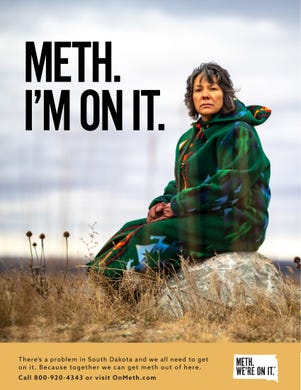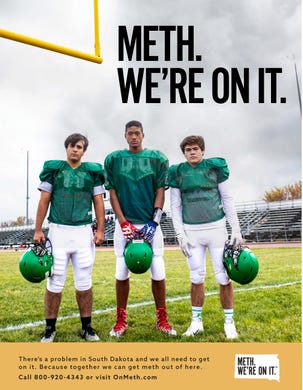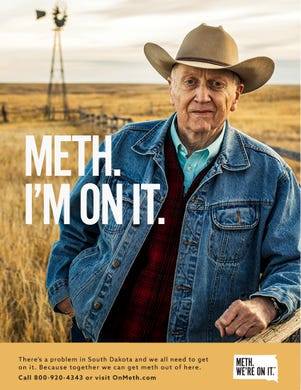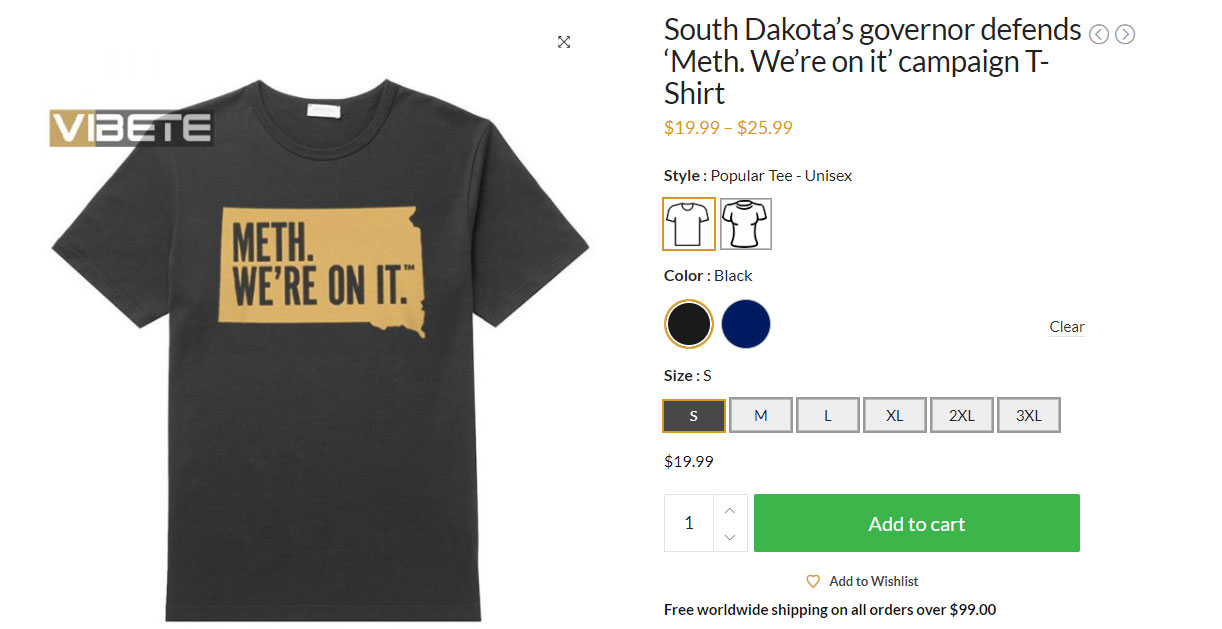“Meth” Campaign Goes Viral
“Meth” Campaign Goes Viral
We all had a good laugh at South Dakota's expense last week for their new anti-drug campaign. The "Meth. We're On It." awareness initiative garnered swift derision online and in newspapers across the country. The campaign rolled out billboards and advertisements depicting "everyday South Dakotans" declaring "Meth. I'm on it."



Was this campaign a good idea?
A quick news search pulls up scores of articles from outlets like CNN, The Washington Post, LA Times, and NBCNews. Many have characterized the campaign as "botched," "a colossal blunder," and noted it's nearly $500k price tag. Gov. Kristi Noem has defended the campaign, claiming it's raising awareness to a critical issue facing her state.
"It seems we've captured attention not just in South Dakota, but around the country and even the world with our new anti-meth campaign. We needed that. In today's age, traditional messages don't cut through the noise. We knew we needed to make a bold statement to make people stop and think... and it is working."
- Gov. Kirsti Noem, South Dakota State News
Clearly, the campaign has garnered a lot of attention. But is it a success?
Rudy and I were firmly divided on this issue. He thinks the slogan is laughable on its face because it belittles the government's outreach efforts. The slogan will become a sarcastic joke among young people just like Nancy Reagan's "Just Say No" campaign did in the 80's and will have no effect on reducing drug abuse. "If the only point was to get into the news cycle for a couple of days, then the effort was a success, but what's next? What's the benefit beyond the short term exposure?"
I believe this was a risky but savvy strategic campaign that leveraged the perception of ineffective government to mock itself into relevance. Maybe I'm giving the marketing agency and the governor's office too much credit, but they had to know how the new slogan would initially play. "What were they thinking?" and "Wow, these people look like idiots" are the instant reactions that swirled, grew, and became the viral storm that launched a thousand tweets and dozens of think pieces. But it also prompted a good deal of factual reporting on the opioid crisis in South Dakota and the state's plan to combat it.
If the metric for the campaign's success is awareness, then Gov. Noem has knocked it out of the park. Even businesses are capitalizing on its viral success by selling "Meth. We're On It!" t-shirts.

Gov. Noem is banking on the audacity of a state government using "Meth. We're on it." as their anti-drug slogan to generate buzz. They are taking one on the chin in the hope that their ham-fisted slogan succeeds in raising awareness and gets them to the next stage of engagement.
So what's next? What you do after something goes viral—purposefully or not—matters. Like Rudy said, if this ends up as just a flash in the pan, then the state government will look like a bunch of morons who wasted a half-million dollars for nothing. However, if they successfully channel that attention into awareness around not just the problem of opioid addiction but the proposed solutions, then they can begin the real engagement work of building support and helping those in need.
My hope is that South Dakota will get over the hump of the first connotation of "Meth. We're on it" and use their newfound notoriety to prove its second meaning—that they are actively tackling this issue in a substantive way. That should be its lasting impression.


